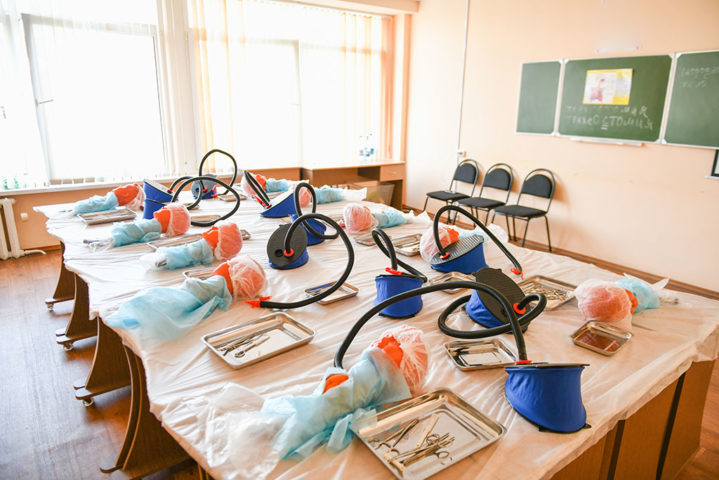If you are a medical professional responsible for responding to cardiovascular emergencies, there’s a good chance that you will be required to earn your Advanced Cardiac Life Support certification. In this guide, we’ll take a look at what ACLS classes cover, who ACLS classes are for, and how you can earn your ACLS certification in Los Angeles in order to provide you with everything you need to know about these important classes.
What Does ACLS Mean?
ACLS stands for “Advanced Cardiovascular Life Support, and ACLS classes are designed to teach medical professionals the skills and knowledge they need to respond to wide range of cardiovascular emergencies. Once you complete the appropriate ACLS courses, you will become ACLS certified – which is a requirement for many medical careers.
What do ACLS Classes Cover?
ACLS courses cover a wide range of skills, practices, and information all centered around teaching students how to provide life support to a patient that is suffering from a life-threatening cardiovascular condition. Just a selection of the things that you can expect to learn when you take an ACLS course includes things such as:
- How to recognize and respond to a patient who is having a stroke
- How to recognize and respond to a patient who is having a heart attack
- How to lead and support a resuscitation team
- How to successfully manage a patient’s airway during a cardiovascular emergency
- How to perform basic life support procedures such as CPR
- The pharmacology of Advanced Cardiac Life Support
- How to set up, use, and read an ECG machine
- How to effectively communicate with your team during a cardiovascular emergency
This, of course, is just an example of the type of topics that you can expect to be covered when you attend an ACLS course through EA Certs. All told, ACLS courses are broad, wide-ranging classes that cover everything a medical professional needs to know in order to effectively respond to a life-threatening cardiovascular condition. If you work as a doctor, nurse, paramedic, or other medical professional responsible for responding to cardiovascular emergencies such as a heart attack or stroke, taking an ACLS class will arm you with the skills and information needed to save a life.
Who are ACLS Classes Designed for?
Compared to more basic life support classes such as HeartSaver courses and BLS courses, ACLS courses cover more advanced skills and topics such as the pharmacology of cardiovascular emergencies, how to set up and use an ECG machine, and more. As such, ACLS classes are intended specifically for medical professionals as opposed to more basic first aid and life support classes that are commonly completed by teachers, coaches, day care professionals, and so forth. If you work as a doctor, nurse, paramedic, first-responder, or other medical professional responsible for providing life support to a patient that is suffering from a life-threatening cardiovascular condition then an Advanced Cardiac Life Support course is likely the right choice for your career. If you are not already a trained medical professional and would like to simply learn basic life support skills such as CPR and how to clear an obstructed airway then you will likely be better off taking a less-advanced first aid or life support class.
What is the Difference Between ACLS and BLS?
As we discussed in the previous section, ACLS courses are more advanced life support classes that are designed specifically for trained medical professionals. BLS classes, on the other hand, stands for “Basic Life Support” classes, and these classes cover life-support and first-aid practices that are less-advanced than those covered by an ACLS course.
Although BLS certification classes are not as comprehensive or advanced as ACLS classes, they do serve the important role of teaching basic life-saving skills to individuals who have not previously learned these skills over the course of their education and career. Ultimately, which class is best for you will depend on your level of medical education, your career, and what it is that you hope to accomplish by taking the class.
What is ACLS Recertification?
In most cases, ACLS certification lasts for two years. After this two year period, you will be required to take an ACLS recertification class if you want to remain certified. Thankfully, ACLS recertification classes are much less involved than the initial course and can be completed in much less time. If you would like to learn more about keeping your ACLS certification up to date by taking an ACLS recertification class, feel free to contact us today.
How do I Get Advanced Cardiac Life Support Certified?
Becoming ACLS certified is as simple as completing an accredited ACLS course – and at EA Certs, we are proud to offer the best CPR certification classes in the Los Angeles area taught by only the most knowledgeable, experienced, and helpful instructors. If you would like to learn more about becoming ACLS certified by taking an ACLS course through EA Certs, be sure to contact us today.

